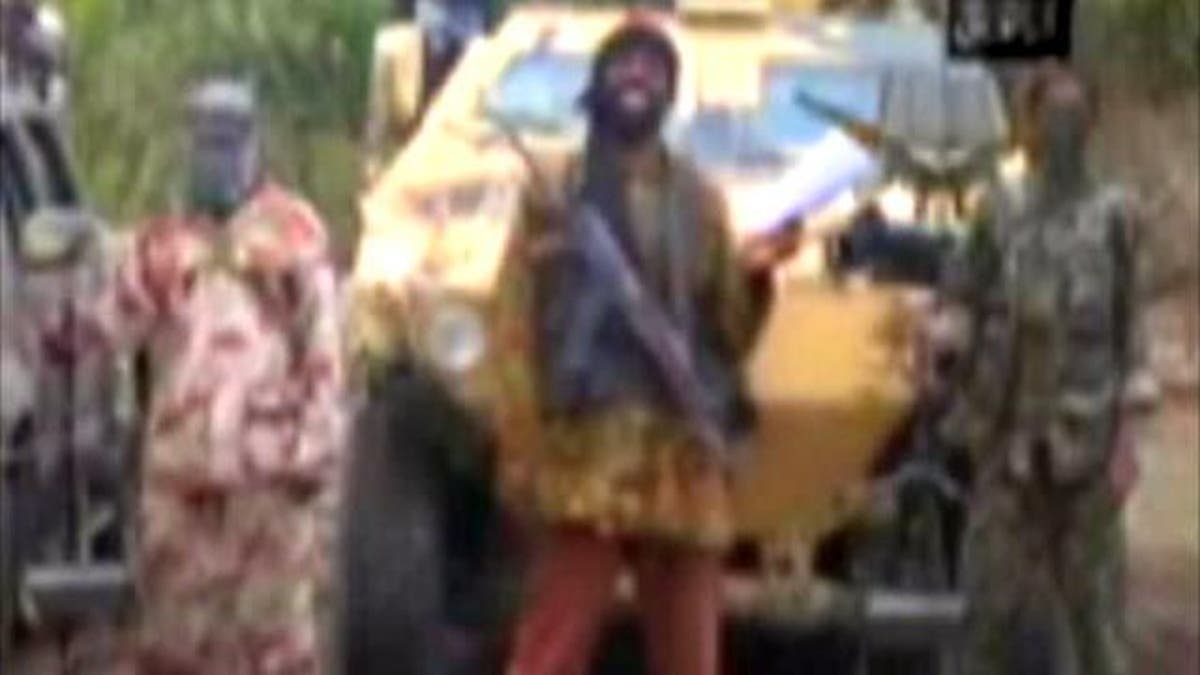
Extremist group Boko Haram raises funds to carry out their attacks by robbing banks and military camps as well as kidnapping for ransom.
Dozens of gunmen wearing stolen police and military uniforms descended on the bank in Nigeria's Yobe province, storming their way inside and forcing the manager at gunpoint to open the vault. As they fled, a security team chased after them, sending bullets flying over the northern town of Gashua.
When the dust settled following the brazen attack in April, 2013, five policemen and 20 gunmen had been killed and Boko Haram had netted $56,000. The attack, one of dozens carried out in the villages of Nigeria's northern states of Yobe and Borno in recent years, provided one example of how Africa's most notorious terror group funds its ruthless and bloody operations.
The organization, now believed to be holding nearly 300 Christian school girls it kidnapped a month ago in Chibok, is also into ransoming or selling women and children, and trafficking in drugs and weapons. The money that pours in goes to recruit more young men to fight, buy sophisticated weapons and sustain an army of terrorists who move through the rural hills of Northern Nigeria.
[pullquote]
“It is a very well-funded organization, where it has so many sources of income including in Nigeria and that whole region," Yan St-Pierre, CEO of the Counter-Terrorism Modern Security Consulting Group, told Voice of America.
Not all of Boko Haram's money comes as a direct result of crime. Reportedly begun in 2002 with a $3 million grant from Osama Bin Laden, the terror group fighting to spread shariah law in Nigeria has many financial supporters within the nation, said University of Massachusetts-Boston Professor Darren Kew, who specializes in conflict and democracy in Africa.
“Boko Haram has always had strong political relationships locally, and there is plenty of funding within Nigeria itself to sustain the movement, so I believe they are getting much of their funding from local supporters,” Kew said. “They have also been financing themselves through bank robberies and kidnapping, which is what I think their main objective originally was in the Chibok kidnappings.”
Last month's kidnappings of 300 girls from a secondary school in the Borno State has drawn international attention - and condemnation - to Boko Haram. And when leader Abubakar Shekau said on a video that he intends to sell the girls "at market," it also shone a spotlight on one way the militant group makes money. Those girls may be sold as slaves or child brides if they are not rescued, and others the group kidnaps are ransomed.
“Kidnapping has always been lucrative for them [Boko Haram],” Mark Schroeder, vice president of Africa Analysis for geopolitical intelligence firm Stratfor, told FoxNews.com. “But what really pays for them is the kidnapping and ransom of expats.”
In February, a worker for French energy company GDF Suez and his family were on vacation near Cameroon's Waza national park when they were captured by Boko Haram fighters. The terror group demanded that militants held in Nigeria and Cameroon be released or the hostages would be killed. In the end, they reportedly got $3 million from GDF and the freedom of 16 prisoners.
While no one can say exactly how much money Boko Haram has, there is little dispute that they are well-funded. Police and military officials have often complained that the terror group has them outgunned, using increasingly sophisticated weaponry. Earlier this week, Borno state Gov. Kashim Shettima warned Nigerian President Goodluck Jonathan that more troops and better weapons are need to take on Boko Haram.
"I made it emphatically clear to Mr. President that Boko Haram are better armed and better motivated," Shettima said, after the largely Christian village of Izghe was attacked Saturday, resulting in 106 deaths. "We are in a state of war. That is what I came to tell the president."
